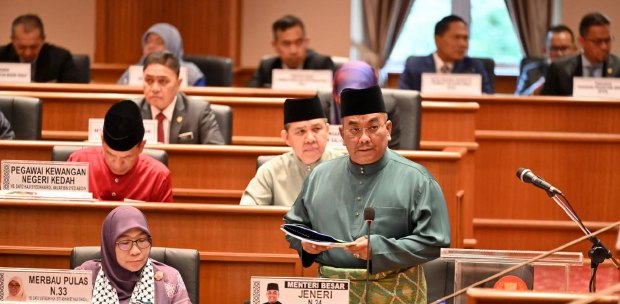MANY Malaysians have been crunching the numbers and giving their opinions on the 2023 Budget.
There are even those who argue that the tabling of the Budget was a waste of time and resources as whoever wins the 15th General Election (GE15) may introduce a new budget altogether.
Whatever the fate of the Budget, I find the plan to be transformative.
It is clear that the focus was on what the government could and should do, rather than on what "it can afford", especially in the context of resetting the economy in the post-pandemic era.
It is apparent that what matters most are not really the debt and deficit levels, but to focus on the deficits that matter.
The government appears to no longer take on the role of facilitator, that is, only fixing the market when it fails. Instead, the government plays a more important role, co-creating value and co-shaping markets with other economic agents.
There must be an end to the notion of trickle-down economics and the myth that markets are efficient.
The long-term prosperity of Planet Earth is taken into consideration, together with the basic needs of the people.
More importantly, in the Budget is the idea that an economy has to move beyond growth.
In other words, looking at development beyond the gross domestic product.
Unlike previous budgets, mission-oriented policies on Earth have been set.
Additionally, the concept of values has been redefined, that is, to see what really matters and is productive to the economy not merely from the neoclassical standpoint.
Can it be right if value is seen from a subjective perspective? Or when value is determined by price? Or, should it be the other way around?
Naturally, if the Budget is viewed with conventional economic lenses, it would give rise to questions like, "Can the government afford it?"
What is the source of revenue? Is it sustainable?
First of all, to use a household budget in explaining how the federal government budget works is inappropriate.
The fundamental and crucial difference is this: The federal government is the issuer of the currency, whereas a household is the currency user.
Thus, the idea that the government needs our money before it can spend is reverse logic. It doesn't work that way.
Taxes are there for many other purposes, such as to control inflation, to distribute wealth, or to encourage or discourage certain behaviours. Most importantly, taxation creates demand for government currency.
Remember, from an accounting standpoint, when the government is in the red it means we are in the black, and vice-versa.
Of course, who are 'we' here is the real issue.
Thus, it is a fallacy to argue that the economy is good simply because the government has experienced a budget surplus.
Look at the US economic history. Every time it managed to balance the federal budget or have a surplus (1817-1821, 1823-1836, 1852-1857, 1867-1873, 1880-1893, 1920-1930, 1998-2001), a depression occurred.
Remember in Malaysia before the 1997/98 Asian Financial Crisis? Didn't our economy also experience years of surplus?
The real issues here are twofold: First, the real limit to debt and deficit levels, which is inflation; and second, what type of spending we have allocated, that is, one that can improve our productive capacity in the future.
Depending on the outcome of GE15, the Budget may be re-tabled or a new one will be proposed.
While its numbers, measures, and the question of who gets what may change, I hope that its purpose and principles remain the same.
The writer is associate professor at the School of Economics, Finance and Banking, Universiti Utara Malaysia






